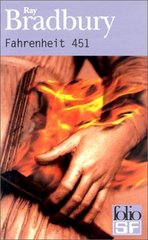What is the major theme of this novel? Why is this theme important to a teenager living in 2007? 
The theme of this novel is the corruption of socialist ideals. The pig, Napoleon, builds socialist government after chasing Jones out of the Manor Farm. Napoleon gets to grab the political power in their new farm, Animal Farm. At first, every animal seemed to like the idea of ruling the farm themselves, but as the time passed, the pigs were ruling the farm because they were the smartest. Pigs made the rules which are privilege to them, for example they make rules like pigs don’t have to do labor and can wake up an hour late. Squealer, another pig who follows Napoleon, explains really well to the animals why the pigs have the special rights to do things which other animals can’t do and since other animals are not that smart, they believe it as they were told. The privileges of the pigs get too extreme later for the other animals to handle. This theme is important to teenagers living in 2007 because this novel shows that we should choose a leader and be a leader who can really care for us and do things which can benefit his/her citizens. If the teenagers, who are going to lead our world years later, become to be like Napoleon or the other animals who are following him without any thoughts, it would certainly be a dystopia. Since we are the ones who are going to lead our world, we should try to make our world a utopia, not like the Animal Farm.

The theme of this novel is the corruption of socialist ideals. The pig, Napoleon, builds socialist government after chasing Jones out of the Manor Farm. Napoleon gets to grab the political power in their new farm, Animal Farm. At first, every animal seemed to like the idea of ruling the farm themselves, but as the time passed, the pigs were ruling the farm because they were the smartest. Pigs made the rules which are privilege to them, for example they make rules like pigs don’t have to do labor and can wake up an hour late. Squealer, another pig who follows Napoleon, explains really well to the animals why the pigs have the special rights to do things which other animals can’t do and since other animals are not that smart, they believe it as they were told. The privileges of the pigs get too extreme later for the other animals to handle. This theme is important to teenagers living in 2007 because this novel shows that we should choose a leader and be a leader who can really care for us and do things which can benefit his/her citizens. If the teenagers, who are going to lead our world years later, become to be like Napoleon or the other animals who are following him without any thoughts, it would certainly be a dystopia. Since we are the ones who are going to lead our world, we should try to make our world a utopia, not like the Animal Farm.









